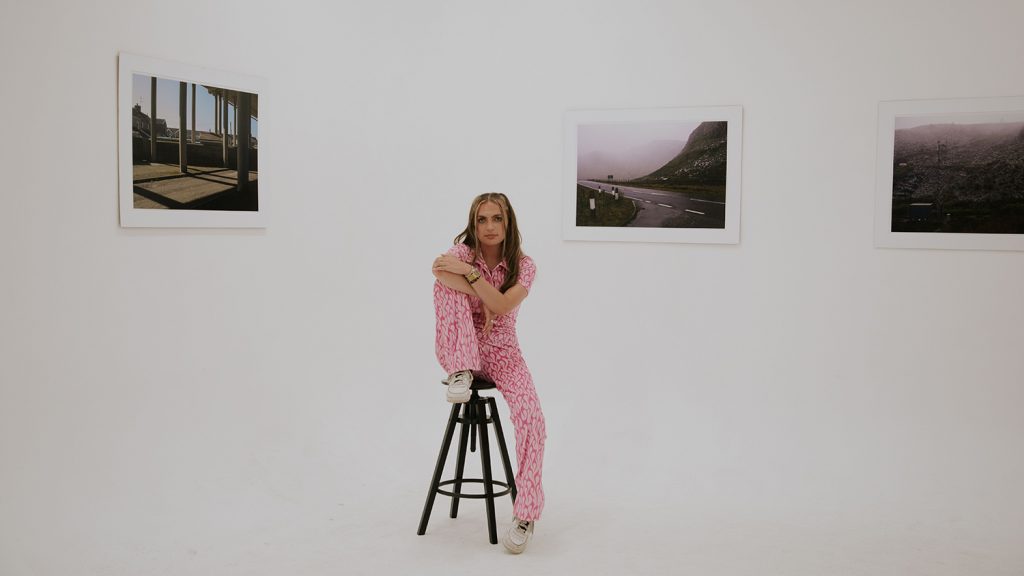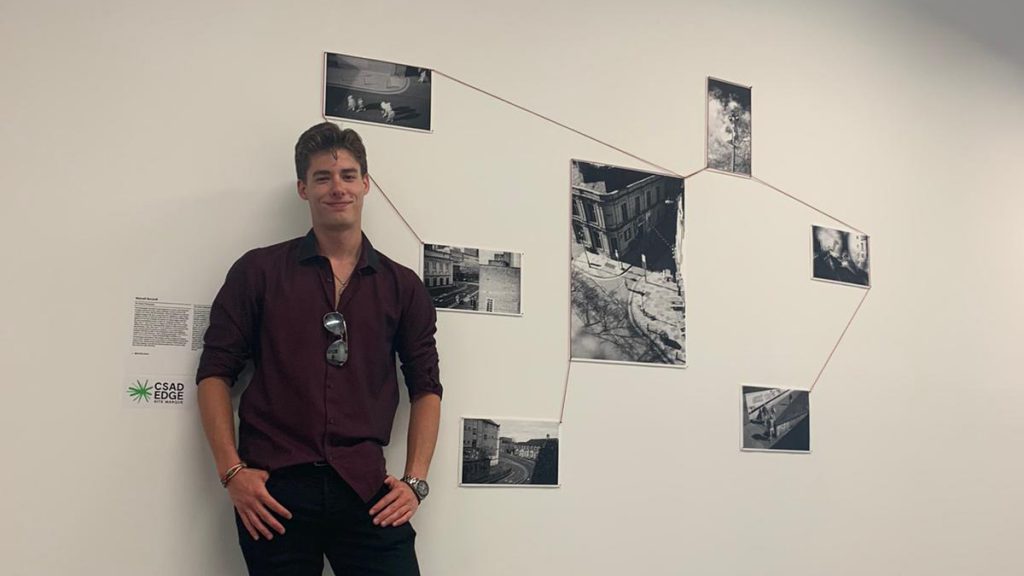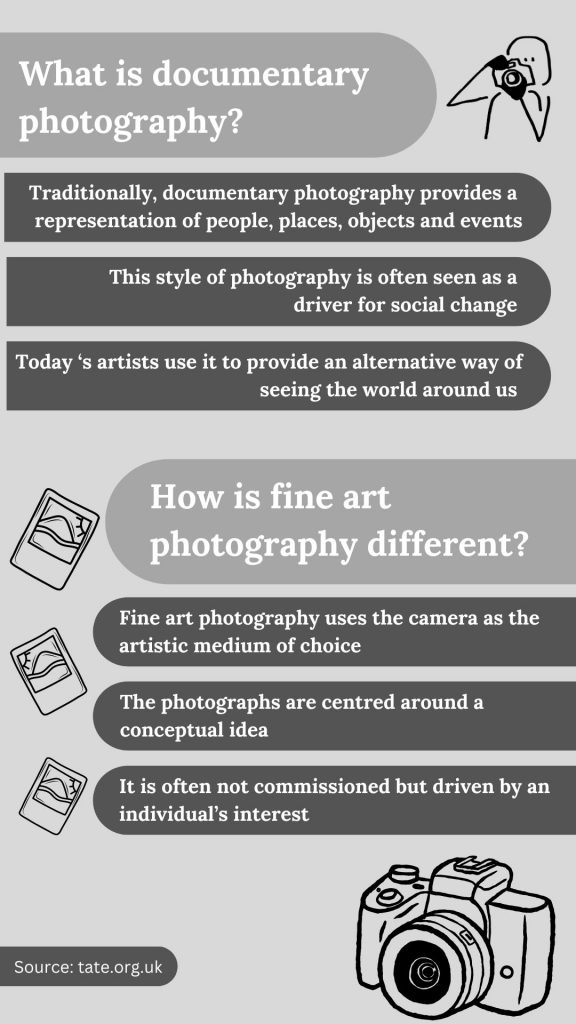Despite some galleries in Wales setting up projects to support young photographers, opportunities are in decline, leaving artists wondering if the career they dreamed about might ever come true

It’s 6.30am in the morning. Marcell Berendi, a 22-year-old graduate, wakes up to the blaring of his alarm. At 7am, it’s still dark outside as he hops on his bike and goes to work. If lucky, he might get to see the sunrise before the start of his shift in the supermarket warehouse at 7.30am. Next day the cycle continues. Photography, which should have been his career, is something he has very little time to think about.
Berendi now lives a life common among photography graduates, who often end up in jobs that are unrelated to their degrees.
According to Prospect, one of the UK’s leading career websites, 72.8% of photography graduates are employed 15 months after graduation. However, 34.6% of them end up working in sectors such as retail, catering and customer service. Compared to this, only 23.4% are in art, design and media-related jobs. Many others end up working freelance.
Berendi, who completed his BA in photography last summer, says the reality of starting a career is something that only hits once out of university. “It’s hard to start. I assumed it would be. But it’s a lot harder to actually face it,” he admits.
Making it in the creative field
Careers in the creative industries are compelling for young people, says Brian Carroll, 58-year-old photography enthusiast. Carroll, while a graphic designer by profession, has been fascinated by photography for a long time. He is now one of the two people behind Ffoton, a project bringing Welsh photography together.
In the UK, there were 65,380 graduates in the field of design, creative and performing arts in 2022, according to the Higher Education Statistics Agency. This places the subject area in the fourth place for most graduates within one field. The competition for jobs is intense.

While there are numerous universities offering photography degrees, what their graduates are missing are opportunities. Reminiscing on the past when he first got into photography, Carroll explains that some of the biggest employers of photographers used to be media organisations and photography studios. Due to the decline of local newspapers, there is a diminishing need for professional photography in the press. Meanwhile, studios do not provide a satisfying enough career progression, nor good salaries, he says.
Ffion Denman, 24, is a Cardiff-based emerging artist who started her journey in photography when she was 15. “My dad’s a photographer. So, I think that was my sort of way into seeing photography as an actual career rather than just a hobby,” she says. While studying photography at an undergraduate level, she also grew concerned about her chances of making it in the industry. “The grind was so hard,” she says, “so I was like ‘Am I driven enough to make it worth it?’” She eventually ended up doing a master’s degree in curation.

For those leaning towards the fine art and documentary side of photography, Arts Council funded initiatives are one way to find support in an otherwise tough industry. One such project is Ffocws, Ffotogallery’s current exhibition, which was created to provide a platform for graduates and emerging photographers in Wales. This year’s showcase features fourteen artists, ten of which are graduate artists from Welsh Universities. Their works will be on display until 12 January 2024. “We travelled around Wales and selected between what we thought were the most innovative and interesting works, making the most relevant comments on what’s happening in society,” said Siân Addicott, director of Ffotogallery.
The exhibition also features four artists from Wales selected through an open call for the Higgins Photography Initiative.This six-month-long mentoring programme is run by Cardiff MADE gallery, helping photographers develop their artistic portfolio. And while such projects can help artists get more exposure, their careers are still uncertain.
“Clients don’t want conceptual, clients want practical. … you need to be working with clients who are commissioning photography, not art,” says Carroll, who has had nearly 60 conversations with photographers about their careers since starting Ffoton. Turning to the artistic side can make it more difficult to succeed in the industry, but it is not impossible, he concludes.
A place for artistic photography
Despite not working directly as a photographer, Denman found a way to turn her passion into work. The Cardiff-based creative often engages in workshops and freelance photography projects where she gets to help kids explore the world of cameras. She spent the first six months of this year in Argentina, teaching photography in different schools, while also working on her own photography project alongside it.
People have experiences and stories that need to be shared, and so there will always be a call for an artistic expression that’s outside of the commercial world
Ffion Denman
Denman spent a lot of time abroad updating her father’s photography archive. On her days off she would visit local shops, bakeries and community events to talk to people and take photos. Such journeys always involved a lot of unknown. New people, new stories, new connections. On some days she got home with new images, on others, with new acquaintances.
To find out why connections are key in photography, watch the video below:
“What’s the point of having art, if it’s all commercial?,” asks Denman. While she agrees that it is commercial photography that makes money, she says documentary and fine art photography serves a different role in society. “People have experiences and stories that need to be shared, and so there will always be a call for an artistic expression that’s outside of the commercial world,” she argues.
Reflecting on her experience, she considers herself lucky for getting an opportunity to explore her photographic practice. But it also ended in June. So, just like Berendi, for the past six months Denman has not had much time to pick up her camera.
Meet the artists
Marcell Berendi
Berendi is a 22-year-old Cardiff-based photographer, with a BA in photography from Cardiff Metropolitan University. He describes himself as a documentary and artistic photographer.
“I’m really interested in working with film. It’s technically a lot more challenging than digital it is. When you click and take a photo with the digital camera, you can see the photo. … With film, you need to make sure the photo will be good before you take it. Also, film just has unique visual elements to it. There’re different companies making film, so they have different colours and black and white is also different with literally every film. I enjoy developing the film, printing from it, making an image. I just like getting my hands dirty making an image, not just taking one,” he says.
Berendi’s work from his graduate project which explores the issue of surveillance is now exhibited at Cardiff MADE gallery’s winter showcase.
Instagram: @marcellb_photos
Ffion Denman
Denman in is a 24-year-old Cardiff and Swansea-based creative, with a master’s in curating and collection, doing documentary photography.
“Photography can be something quite aggressive. You can take someone’s photo without consent, or maybe you’re just portraying this person in a way they don’t want to be portrayed. … Having a sort of balance between giving and taking is really important in my photography work. So, it’s about doing projects about community experiences, but also doing workshops that everyone can come to and inform the project, and how they would want to be represented,” she says.
She is one of the four artists who are now part of the Higgins Photography Initiative. Her work which is now exhibited at Ffocws talks about cultural displacement and the values of Welsh identity in Patagonia.
Instagram: @ffiondenman
